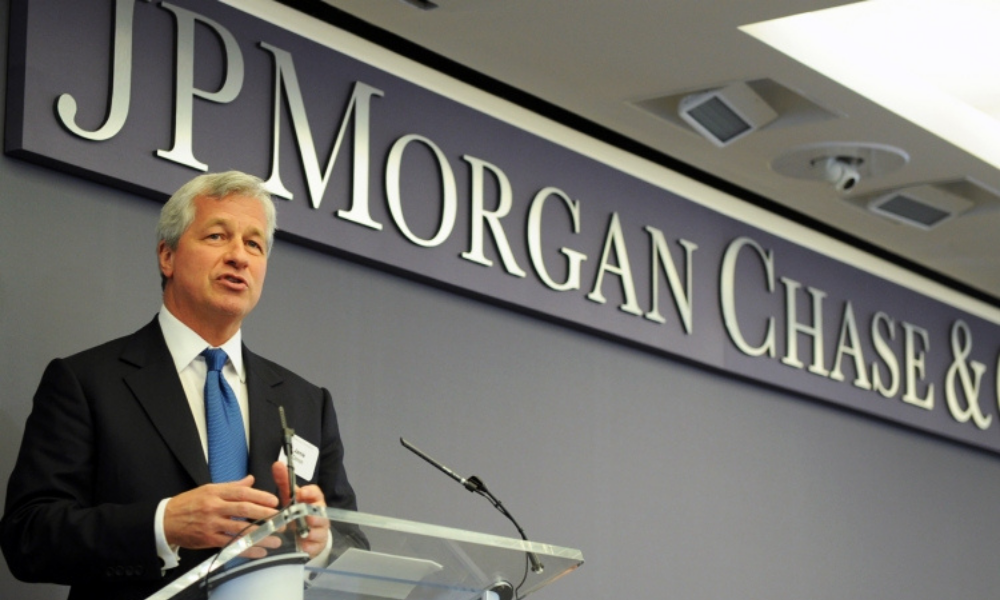
PRIMARY CONCEPTS
JPMorgan Chase reported a profit that beat analysts' forecasts on Friday, thanks to lower-than-expected credit losses and the return of loan growth in some parts of the company.
The figures are as follows:
According to Refinitiv, earnings were $3.33 per share, compared to an estimate of $3.01 per share.
Revenue: $30.35 billion, compared to a forecast of $29.9 billion.
In premarket trade, the bank's stock fell 3.7 percent. JPMorgan reported a $1.8 billion net advantage from releasing provisions for loan losses that never materialized; earnings would have been $2.86 per share if not for the 47 penny per share bump.
JPMorgan benefited from its decision to set aside billions of dollars for loan losses earlier in the pandemic, as it was able to gradually release the cash as borrowers fared better than projected. However, CEO Jamie Dimon has stated that the accounting benefit is not a critical component of the company's profits. Even with the rise, JPMorgan's earnings beat was the smallest in the previous seven quarters.
"Despite challenges relating to the Omicron variant, inflation, and supply chain bottlenecks, the economy continues to do fairly well," Dimon noted in the announcement. "Credit is strong, with extraordinarily low net charge-offs, and we remain confident about U.S. economic growth," says the company.
While overall income increased by 1% to $30.35 billion in the quarter as a slowdown in markets revenue was offset by strong investment banking fees, non-interest expenses increased by 11% to $17.9 billion due to rising compensation costs, according to the bank. That was more than the $17.63 billion estimates of FactSet's analysts.
After a successful year on Wall Street, JPMorgan executives have previously spoken about the need to invest in technology and compensate staff; but, analysts may question management about the trend of spending this year.
In an emailed statement, Octavio Marenzi, CEO of consultancy Opimas LLC, said, "JPMorgan's performance was disappointingly weak and were hurt by uncharacteristically poor spending control."
Consumers and businesses were left flush by government stimulus programs during the epidemic, causing slow lending growth and leading Dimon to declare last year that loan growth was "difficult." However, economists predict that demand from enterprises and credit card borrowers would boost sales in the fourth quarter.
Last month, JPMorgan Chief Operating Officer Daniel Pinto warned at a conference that fourth-quarter trading revenue will be down 10%, owing to a reduction in fixed income activity from record levels.
Trading revenue, on the other hand, slowed more than projected, falling 13% to $6.3 billion in the quarter, according to the bank. The reason for this was mostly due to a slowdown on bond trading desks. The increase in investment banking fees was aided by a 37 percent increase in investment banking fees.
Last month, the bank was compelled to pay $200 million in fines to settle claims that its Wall Street division allowed employees to avoid record-keeping regulations by using chat applications.
Analysts may also inquire about the implications of the bank's recent move to reduce overdraft costs. Last month, JPMorgan said that clients would be given a grace period to avoid the punitive fees, a move that, together with other adjustments, will result in a "not insignificant" revenue blow.
Before Friday, JPMorgan's stock had risen 6.2 percent this year, trailing the KBW Bank Index's 11.6 percent gain.